
Professor Fay Bound Alberti
Professor in Modern History
- Director, Centre for Technology and the Body
- UKRI Future Leaders Fellow
Research interests
- History
Biography
Since taking her DPhil at the University of York in 2000, Fay has worked extensively on the histories of the body, medicine, emotion and gender. Her work is thematic, moving from the early modern period (her DPhil thesis was on 'Performativity and practice: emotions at the church courts of York 1660-1760' to the present day. Having taught at the Universities of York, Manchester, UCL, Huddersfield and Lancaster, and having received several major grants from the British Academy, Wellcome and AHRC to study the histories of medicine, emotion and the body, Fay took time out of academia in 2006-2013 to work as an advisor in the funding sector. She was Head of Philanthropy for Lisbet Rausing and the Arcadia Fund, where she advised specifically on digitisation and cultural conservation, and Head of Medical Humanities and Ethics funding for the Wellcome Trust. Fay continued her research and publishing alongside these roles, and returned to academia in 2019, with one of the first UKRI Future Leaders Fellowships, to study the history and meanings of facial transplantation.
Fay's work has always been interdisciplinary, engaging with sociology, anthropology, literary and gender theory, and her books range from the history of the body in parts, to the cultural meanings of the heart and the history and politics of loneliness. After working as a Professor in History at the University of York, and co-directing the Centre for Global Health Histories, Fay moved to King's in January 2023 as Professor in Modern History. Her UKRIFLF funded project Interface (Interface.org.uk), previously AboutFace, shows how important the humanities are for understanding surgical innovation, guiding medical practice and evaluating patient experience. Working with experts in 9 different countries around the globe, Interface examines the face as a mediator between the subjective and social worlds. It explores surgery, aesthetics and technology in relation to the human face, with particular reference to face transplants, cosmetic surgery and technologies from facial recognition systems to Deepfakes. Identity, disability, ethnicity, race and gender are among its core themes.
Fay is also the Director of the Centre for Technology and the Body, one of three centres that are affiliated to the Digital Futures Institute at King's. The work of the Institute addresses Living Well with Technology – exploring how being human, and living well, intersects with the invention and implementation of technologies old and new. Fay is committed to collaborative and interdisciplinary working, is a member of the UKRI Peer Review College and Fellow of the Royal Historical Society. She is currently writing two interconnected books: one on the cultural history and meanings of the face, and another on transplants and emotion.
Research Interest and PhD Supervision
- History of emotion
- History of the body
- Medical History
- Gender History
- Social and Cultural History
Selected Publications
Books
With Anne Marie Rafferty and Marguerite Dupree (Eds) Germs and Governance: the past, present and future of hospital infection (Manchester University Press, 2021).
A Biography of Loneliness: The History of an Emotion (OUP 2019)
This Mortal Coil: The Human Body in History and Culture (OUP 2016)
Matters of the Heart: History, Medicine and Emotion (OUP 2010)
Peer reviewed articles
With Matthew Ridley, Emily Herrington, James Benedict, and Sarah Hall, ‘What We Still Don’t Know About Vascularized Composite Allotransplantation (VCA) Outcomes and Quality of Life Measurements’, Transplantation Reviews (2022), p. 100708.
Fat Shaming, Feminism and Facebook: What ‘Women Who Eat on Tubes’ Reveals about social media and the Boundaries of Women’s Bodies’, The European Journal of Cultural Studies, 24 (2021), pp.1304 – 1318.
With Victoria Hoyle, ‘Face Transplants: An International History’, Journal of the History of Medicine and Allied Sciences, 76 (2021) pp. 319 – 345.
With Declan Murphy, Victoria Hoyle, Daniel Saleh, and Jon Rees, ‘Central Importance of Emotional and Quality-Of-Life Outcomes in the Public’s Perception of Face Transplantation’, British Journal of Surgery, 5 May 2021.
With Victoria Hoyle, ‘“A procedure without a problem”, or the face transplant that didn’t happen. The Royal Free, the Royal College of Surgeons and the challenge of historical firsts’, BMJ Medical Humanities (2021), 48, PP. 315 – 324.‘
Reflections on the heart: medicine, emotion and history’, BMJ Medical Humanities, 46, 2020: e3.
Before-and-after? Face transplants as surgical acts and psychosocial processes’, The Lancet, 4 April 2020.
This “Modern Epidemic”: Loneliness as Both an ‘Emotion Cluster’ and a Neglected Subject in the History of Emotions, Emotion Review, 10 (2018), pp. 1 – 13.
From Paraffin to PIP: The Surgical Search for the Perfect Breast’ in Mark Jackson (ed.) The Routledge History of Disease (London: Routledge, 2017), pp. 335 – 357.
From Face/Off to the Face Race: The Case of Isabelle Dinoire and the Future of the Face Transplant’, BMJ Medical Humanities, 9 December 2016.
Expertise and Public Engagement
Fay has extensive experience in public engagement and outreach work. During the Covid-19 pandemic she participated in more than 30 international media discussions about the impact and meanings of loneliness as a global health problem. She is a TED and Hay speaker, and a consultant on loneliness and mental health, who writes for publications like BBC History, The Guardian, The Times Literary Supplement and TIME magazine, as well as being a regular interviewee on national and international radio to discuss the history and politics of medicine and emotions. For more information check Fay's website, interface and watch Fay's TED talk here.
News media:
First US Face Transplant Dies, Leaving an Important Legacy’, with Victoria Hoyle, The Conversation, 18 August 2021.
‘Expert review: The value of expertise’, The Guardian, 11 December 2020.
‘Robots to be Introduced in UK Care Homes to Allay Loneliness: That’s Inhuman’, The Conversation, 14 September 2020.
‘Why are so Many of us Baking Bread? On Lockdown Loneliness and the Rituals of Everyday Life’, Medium May 4, 2020.
‘Coronavirus is Revitalising the Concept of Community for the 21st Century’, The Conversation, 29 April 2020.
‘Loneliness is a modern invention: Understanding that history can help us get through this pandemic’, TIME magazine, April 29, 2020.
‘Revisiting “Oneliness”: History Shows we need a more Nuanced Language for the ‘Modern Epidemic’ of Loneliness, Medium, March 8, 2020.
‘Stop Medicalizing Loneliness – History Reveals it’s Society that Needs Mending’, The Conversation, 19 November 2019, also translated into Vietnamese.
‘Top Ten Books about Loneliness’, The Guardian 26 December 2019.
‘La cultureta gran reserve: de la soledad, el pacifism y Pantallas’, Ondecero, 12 May 2022.
‘The Digital Human’, BBC Radio 4, 20 June 2022.
‘Loneliness won’t end when the pandemic ends’, CNN News, 17 April 2021.
‘About Face’, Free Thinking, BBC Radio 3, 17 November 2020.
‘Solidäo’, CNN Brazil, 17 November 2020.
‘A short history of solitude’, BBC Radio 4, 13 October 2020:
‘Covid-19 unlocks a wave of loneliness’, CBC News Canada, 20 May 2020.
‘Thinking Allowed’, BBC Radio 4, 4 March 2020.
‘New Thinking: About Face’, BBC Radio 3, 17 January 2020.
Research

Centre for Technology and the Body
Stories of embodied technology: from the plough to the touchscreen

Interface
Asking critical questions about the meanings of the human face in the past and in the present - what is a face? And why does it matter?
Project status: Ongoing

Living Well with Email
A broad analysis of email and communication practice within King's and externally.
Project status: Ongoing

Centre for the History of Science, Technology and Medicine
Engaging directly with policy-makers to change understandings of history and of the world in which we live today.
News
King's draws together expertise to make the world healthier and advance our understanding of intelligence
Two new multidisciplinary research institutes have been created at King’s to help tackle major challenges for society and find innovative ways to advance...
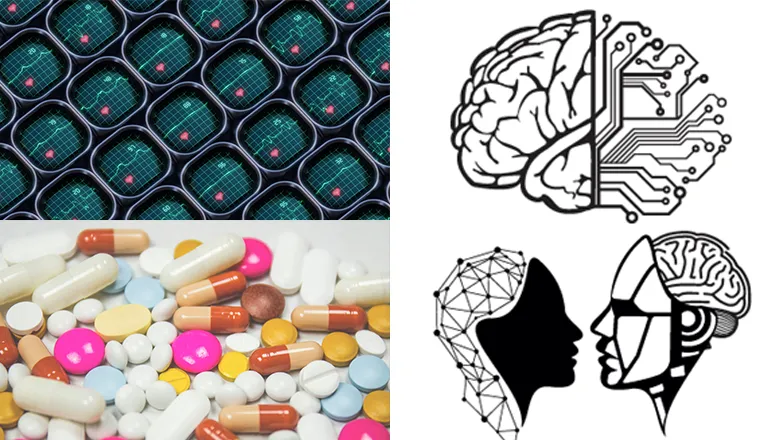
COMMENT: The reconstruction of a 75,000-year-old Neanderthal woman's face makes her look quite friendly – there's a problem with that
This newest facial reconstruction, based on research at the University of Cambridge, invites us to empathise and see the story of Neanderthals as part of a...
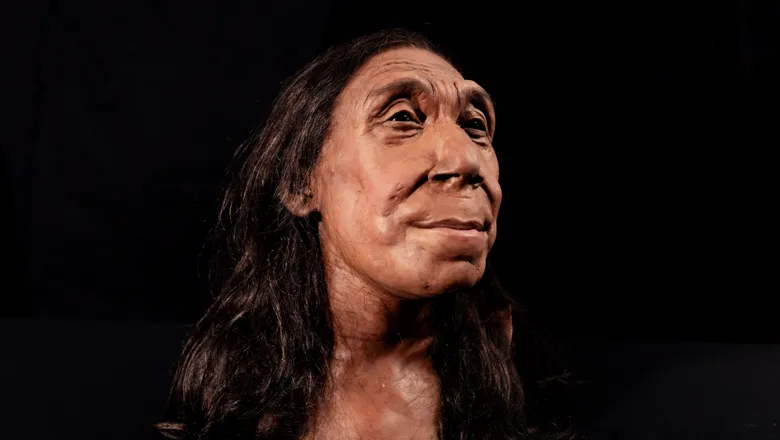
Cuddly 'Purrble' robot visits No. 10 as King's celebrates design exhibition
Design-led research was presented to the Secretary of State for Culture at Downing Street, as the university celebrated the 'Seeking Connection' research...

Material Minds? The rise of Chat GPT and AI
With the rise of language-learning models such as Chat GPT and discussions around AI almost keeping pace with the technology itself, King's hosted a workshop...
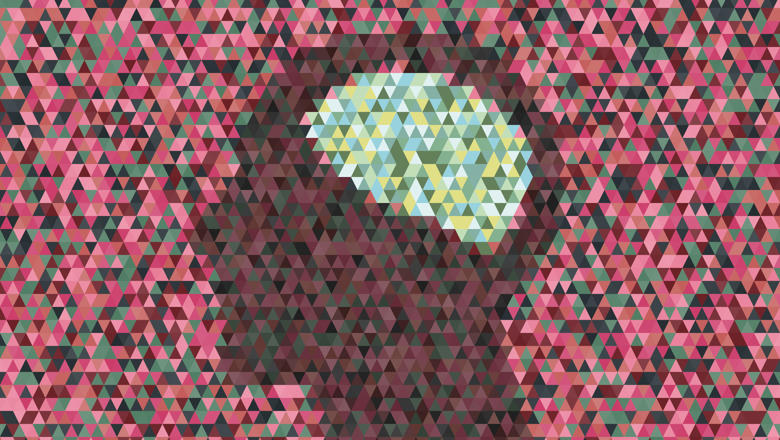
International Women's Day 2023: Transforming technology for gender equality
In recognition of the United Nation’s 2023 International Women’s Day theme celebrating innovation and technology for gender equality, we shine a light on some...
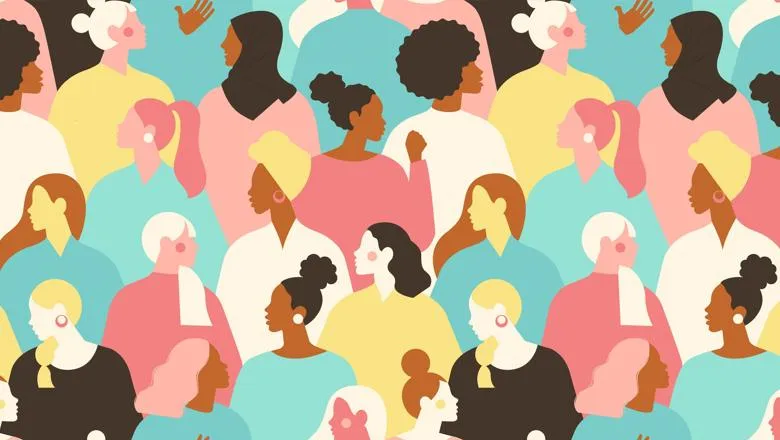
Centre established to examine the relationship between technology and the body
The Faculty of Arts & Humanities has launched the Centre for Technology and the Body as part of the new Digital Futures Institute.

Events

Interdisciplinarity between the arts and humanities and the health sciences at King’s: Workshop 4 – Developing interdisciplinary ideas and supporting funding applications
The final of four workshops organised by the Digital Futures Institute's Centre for Technology and the Body.
Please note: this event has passed.
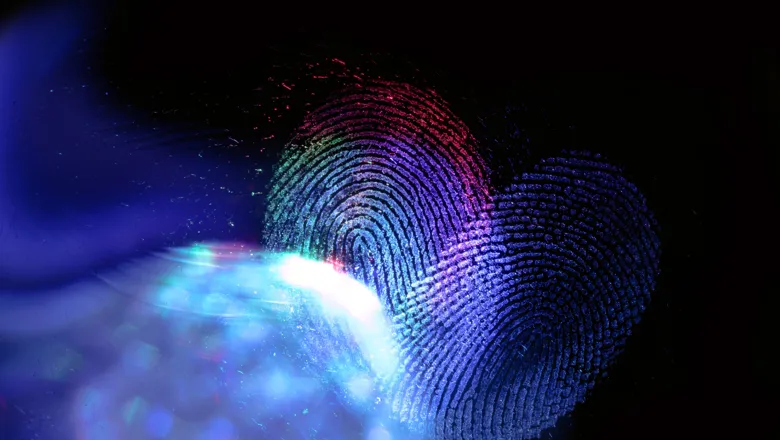
Interdisciplinarity between the arts and humanities and the health sciences: Interdisciplinary seeds & small grants
The third of four workshops organised by the Digital Futures Institute's Centre for Technology and the Body.
Please note: this event has passed.
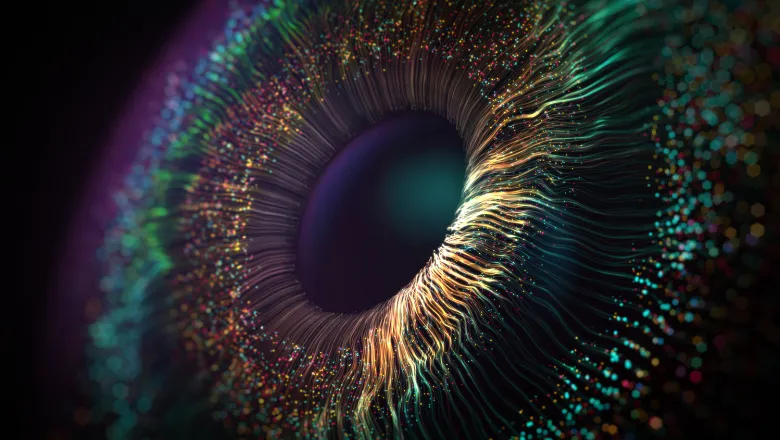
Evil Women: Going Beyond Mad, Sad and Bad
Join us for a talk by Joanna Bourke, Professor Emerita of History at Birkbeck, University of London on ‘Evil Women: Going Beyond Mad, Sad and Bad’.
Please note: this event has passed.
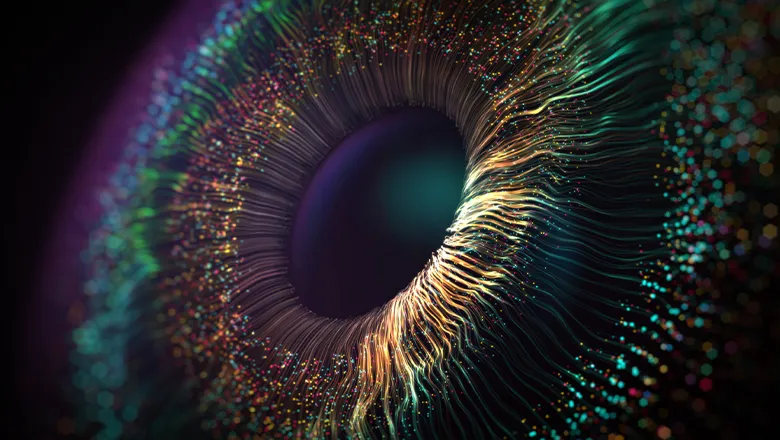
King's Experts Series: Digital Technology & Mental Health
The King’s Experts Series is a series of events exclusively for King’s alumni, this webinar will touch on some of the latest research on digital technology...
Please note: this event has passed.

Intimacy by Design: Imagining ‘closeness’ in online and offline spaces
Led by the Digital Futures Institute’s Centre for Technology and the Body, this event considers the meanings of intimacy, past, present and future.
Please note: this event has passed.

AI and the Visual: Art, Science and Human Bias
Experts from across a range of disciplines who work on visual culture and AI to explore its opportunities and challenges.
Please note: this event has passed.
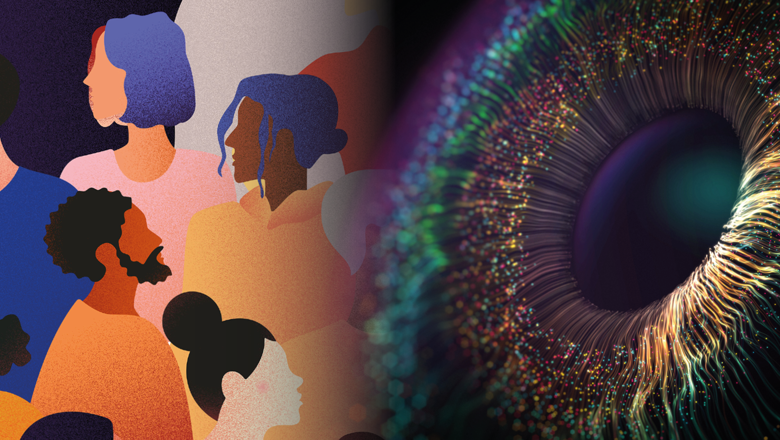
Discovering our Digital Futures and exploring our Global Cultures
King's is pleased to launch the new Digital Futures Institute and Global Cultures Institute.
Please note: this event has passed.
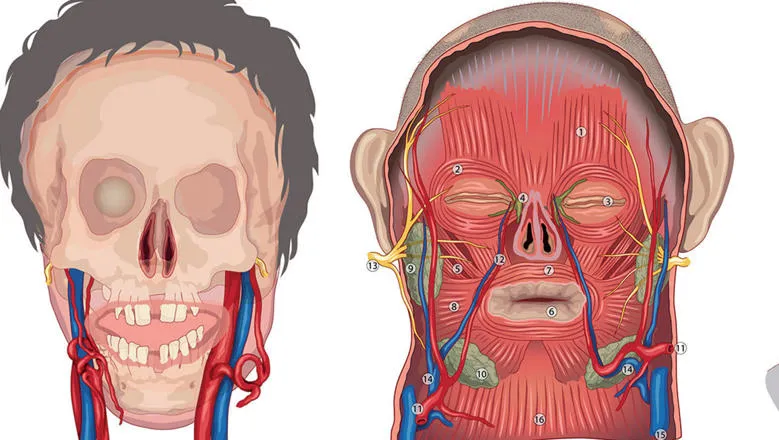
(TBC) Whose face is it anyway? The history and politics of facial transplantation
(TBC) 4.30pm, 22 March, Bush House Room S2.06, Professor Fay Bound Alberti, 'Whose face is it anyway? The history and politics of facial transplantation'
Please note: this event has passed.
Features
The face race
In our latest piece for Net Gains? Professor Fay Bound Alberti discusses how the technological face race is one example of how an interdisciplinary approach...

Research

Centre for Technology and the Body
Stories of embodied technology: from the plough to the touchscreen

Interface
Asking critical questions about the meanings of the human face in the past and in the present - what is a face? And why does it matter?
Project status: Ongoing

Living Well with Email
A broad analysis of email and communication practice within King's and externally.
Project status: Ongoing

Centre for the History of Science, Technology and Medicine
Engaging directly with policy-makers to change understandings of history and of the world in which we live today.
News
King's draws together expertise to make the world healthier and advance our understanding of intelligence
Two new multidisciplinary research institutes have been created at King’s to help tackle major challenges for society and find innovative ways to advance...

COMMENT: The reconstruction of a 75,000-year-old Neanderthal woman's face makes her look quite friendly – there's a problem with that
This newest facial reconstruction, based on research at the University of Cambridge, invites us to empathise and see the story of Neanderthals as part of a...

Cuddly 'Purrble' robot visits No. 10 as King's celebrates design exhibition
Design-led research was presented to the Secretary of State for Culture at Downing Street, as the university celebrated the 'Seeking Connection' research...

Material Minds? The rise of Chat GPT and AI
With the rise of language-learning models such as Chat GPT and discussions around AI almost keeping pace with the technology itself, King's hosted a workshop...

International Women's Day 2023: Transforming technology for gender equality
In recognition of the United Nation’s 2023 International Women’s Day theme celebrating innovation and technology for gender equality, we shine a light on some...

Centre established to examine the relationship between technology and the body
The Faculty of Arts & Humanities has launched the Centre for Technology and the Body as part of the new Digital Futures Institute.

Events

Interdisciplinarity between the arts and humanities and the health sciences at King’s: Workshop 4 – Developing interdisciplinary ideas and supporting funding applications
The final of four workshops organised by the Digital Futures Institute's Centre for Technology and the Body.
Please note: this event has passed.

Interdisciplinarity between the arts and humanities and the health sciences: Interdisciplinary seeds & small grants
The third of four workshops organised by the Digital Futures Institute's Centre for Technology and the Body.
Please note: this event has passed.

Evil Women: Going Beyond Mad, Sad and Bad
Join us for a talk by Joanna Bourke, Professor Emerita of History at Birkbeck, University of London on ‘Evil Women: Going Beyond Mad, Sad and Bad’.
Please note: this event has passed.

King's Experts Series: Digital Technology & Mental Health
The King’s Experts Series is a series of events exclusively for King’s alumni, this webinar will touch on some of the latest research on digital technology...
Please note: this event has passed.

Intimacy by Design: Imagining ‘closeness’ in online and offline spaces
Led by the Digital Futures Institute’s Centre for Technology and the Body, this event considers the meanings of intimacy, past, present and future.
Please note: this event has passed.

AI and the Visual: Art, Science and Human Bias
Experts from across a range of disciplines who work on visual culture and AI to explore its opportunities and challenges.
Please note: this event has passed.

Discovering our Digital Futures and exploring our Global Cultures
King's is pleased to launch the new Digital Futures Institute and Global Cultures Institute.
Please note: this event has passed.

(TBC) Whose face is it anyway? The history and politics of facial transplantation
(TBC) 4.30pm, 22 March, Bush House Room S2.06, Professor Fay Bound Alberti, 'Whose face is it anyway? The history and politics of facial transplantation'
Please note: this event has passed.
Features
The face race
In our latest piece for Net Gains? Professor Fay Bound Alberti discusses how the technological face race is one example of how an interdisciplinary approach...

